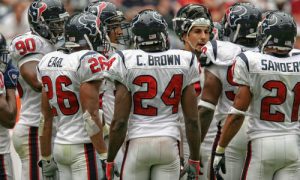Ever since major cities started forking over millions to build stadiums, the economics of professional sports investment have been controversial.
The payoff of hosting the olympics is a common debate for this topic; countries and cities spend billions to build stadiums and facilities that are often neglected after the event, and the true economic lift the international gathering brings is murky at best.
But now experts are starting to question the benefits of every sports investment, and Arizona’s 2008 Super Bowl is no exception, writes the Arizona Republic.
An NFL study — which was conducted with Arizona State University experts — estimated the event’s economic impact to be $500.6 million. The report said fans spent millions on hotels, food and partying, which created a huge windfall for the Arizona economy.
Other analysts, however, are not as bullish on the Super Bowl’s impact — one sports economists calculated a mere $50 million boost from the event, according to the Arizona Republic.
The paper’s own analysis also found some holes in the original report.
The numbers have limitations: The figures do not pinpoint all of the economic activity directly or indirectly related to the Super Bowl. They do not account for visitors displaced by the big game. And they do not include the tens of millions of dollars local corporations and cities spent preparing for and producing the event.
A major counterpoint to this is the fact that there are some intangible benefits to hosting the Super Bowl, like the media exposure it gives your region.
But, as the Arizona Republic points out, it’s hard to talk intangibles when your city has to use millions of tax payer dollars to attract football’s biggest game.
It’s also important to keep in mind that NFL ticket sales are not taxable due to the league’s non-profit status, so there’s no direct way for local authorities to recoup those costs.
Even the economic benefits of LeBron James’ return to Cleveland are being questioned.
James is undoubtedly a smart investment for the Cavaliers and the city, which has been featured in a variety of ads touting James’ return. But, it’s highly unlikely that his homecoming will bring in the $500 million that was originally (and hastily) predicted, according to the New York Times’ Binyamin Appelbaum.
That half a billion estimate has since been reduced to $285 million, though, even a $500 million LeBron stimulus would only expand Cleveland’s economic output ($123 billion) by less than 0.5 percent, according to the report.
Still, some question whether LeBron’s return is simply redirecting cash that would normally be spent on dining and retail to Cavs tickets.











